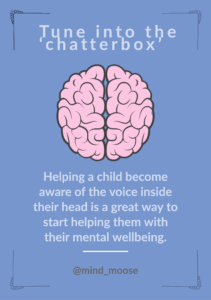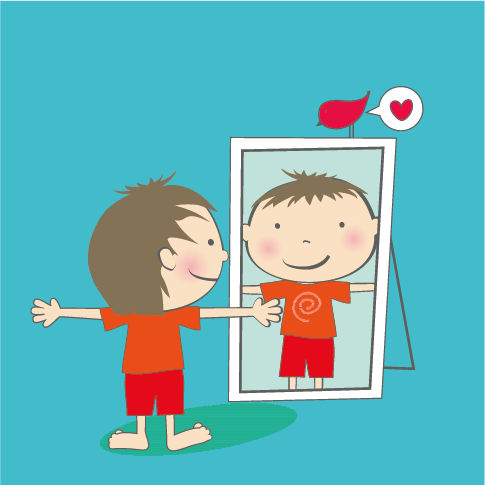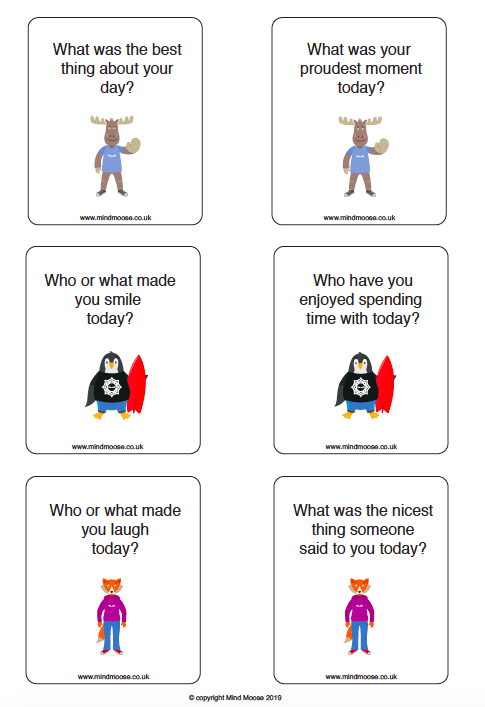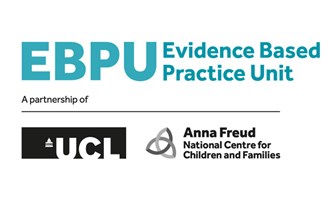 What is an inner voice?
What is an inner voice?
As humans, we all have an inner voice. It’s the one that talks to us in our minds and helps us to make decisions and complete tasks. For example, “Hmmm…what do I need to take to school today?”, “I wonder what’s for lunch today?”,”Don’t forget your pencil case!”.
Our inner voice can be helpful and sometimes it can be critical. i.e. “Oh no, I forgot my pencil case. You idiot!”. This critical inner voice can call us names, tell us we’re a failure or we’re not good at something and shouldn’t even try. If we listen to this critical inner dialogue too much, it can influence how we feel, think and behave. So we might form negative beliefs about ourselves and our ability to do something, which might lead to us to not doing it, not trying, or giving up.
Why is it helpful for a child to notice their inner voice?
Having awareness of the inner voice is a really important part of behaviour therapy, however it’s also very helpful for us all in looking after our mental health and wellbeing. We’re so used to it being there that we often don’t even notice it, but we can learn to tune into it and if necessary, take less notice of the critical things it tells us.
Becoming aware of our inner voice is a really important first step and it’s a skill that children (and adults!) can learn. It can be a tricky concept for some children. However, often with a little bit of patience and practice, most children (research suggests over the age of around 7) can learn to be aware of and notice their inner voice.
These tips can help you to help a child notice their inner voice:
Ways to help a child notice their inner voice
- Normalise it – we all have an inner voice; an ‘always on’ dialogue that is going on in our heads.
- Call it whatever works – it could be ‘your thinking’, ‘your mind’, ‘the voice in your head’, ‘your chatterbox’ etc.
- It can help to explain that the inner voice is always there – it’s like a radio, talking away in our head and telling us what is happening, or about to happen, or reminding us of what did happen.
- Help them to understand it can take practice and time to be aware of and focus on it – don’t put pressure on them, or yourself, but do give it a few tries before you give up.
- You could ask them to sing their favourite song in their head, or do a simple sum – were they able to ‘hear’ themselves? That’s their inner voice.
- Do exercises to tune in together – experiment to see if you can find what your thinking voice is saying (see exercise below)
- Firstly, create the right atmosphere to ‘tune in’ – make sure you are in a quiet, calm place with no distractions and the young person is engaged.
- Invite them to take a ‘mindful’ moment before you start (ie feet on the floor, back straight, close their eyes if they want, or look at a spot on the floor, take some breaths in and let it out).
- See if they can just ‘tune in’ to what they are thinking and notice their thoughts (in their head or out loud)
- Model noticing your thinking…”I’m thinking that this room is a bit cold” / “I’m thinking that the spot on the floor I’m looking at is dirty”.
- Invite them to just notice what their thinking mind is saying/doing – there is no right or wrong, this is just about being aware and noticing.
- Remind them it takes practice, so keep it short and encourage any noticing at all.
Helping children to understand and manage their inner voice is an important part of our Mind Moose online programme. Find out more how it could help you if you work in a school, or are a parent.








